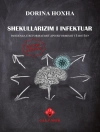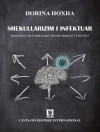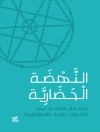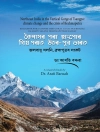Adam Grant’s “8 New Idea Books to Start Spring”
Next Big Idea Club’s Must-Read Books for May 2024
‘A wonderful litany of the myriad ways in which we can be deceived, and deceive ourselves.’—The Guardian
‘Entertaining, thorough and full of current examples. . . . It’s excellent.’ —The Wall Street Journal
How our biases cause us to fall for misinformation—and how to combat it.
Our lives are minefields of misinformation. It ripples through our social media feeds, our daily headlines, and the pronouncements of politicians, executives, and authors. Stories, statistics, and studies are everywhere, allowing people to find evidence to support whatever position they want. Many of these sources are flawed, yet by playing on our emotions and preying on our biases, they can gain widespread acceptance, warp our views, and distort our decisions.
In this eye-opening book, renowned economist Alex Edmans teaches us how to separate fact from fiction. Using colorful examples—from a wellness guru’s tragic but fabricated backstory to the blunders that led to the Deepwater Horizon disaster to the diet that ensnared millions yet hastened its founder’s death—Edmans highlights the biases that cause us to mistake statements for facts, facts for data, data for evidence, and evidence for proof.
Armed with the knowledge of what to guard against, he then provides a practical guide to combat this tide of misinformation. Going beyond simply checking the facts and explaining individual statistics, Edmans explores the relationships between statistics—the science of cause and effect—ultimately training us to think smarter, sharper, and more critically. May Contain Lies is an essential read for anyone who wants to make better sense of the world and better decisions.
Jadual kandungan
Contents
Introduction
PART I: THE BIASES
1. Confirmation Bias
2. Black- and- White Thinking
PART II: THE PROBLEMS
3. A Statement is Not Fact
4. A Fact is Not Data
5. Data is Not Evidence: Data Mining
6. Data is Not Evidence: Causation
7. When Data is Evidence
8. Evidence is Not Proof
PART III: THE SOLUTION
9. Thinking Smarter as Individuals
10. Creating Organizations that Think Smarter
11. Creating Societies that Think Smarter
Appendix: A Checklist for Smarter Thinking
Acknowledgements
Notes
Index
Mengenai Pengarang
Alex Edmans is Professor of Finance at London Business School. His TED talk "What to Trust in a Post-Truth World" has been viewed two million times; he has also spoken at the World Economic Forum, Davos, and in the UK Parliament. In 2013, he was awarded tenure at the Wharton School, and in 2021, he was named MBA Professor of the Year by Poets&Quants. Edmans writes regularly for the Wall Street Journal, the Financial Times, and Harvard Business Review. His first book, Grow the Pie, was a Financial Times Book of the Year. He is a Fellow of the Academy of Social Sciences.










